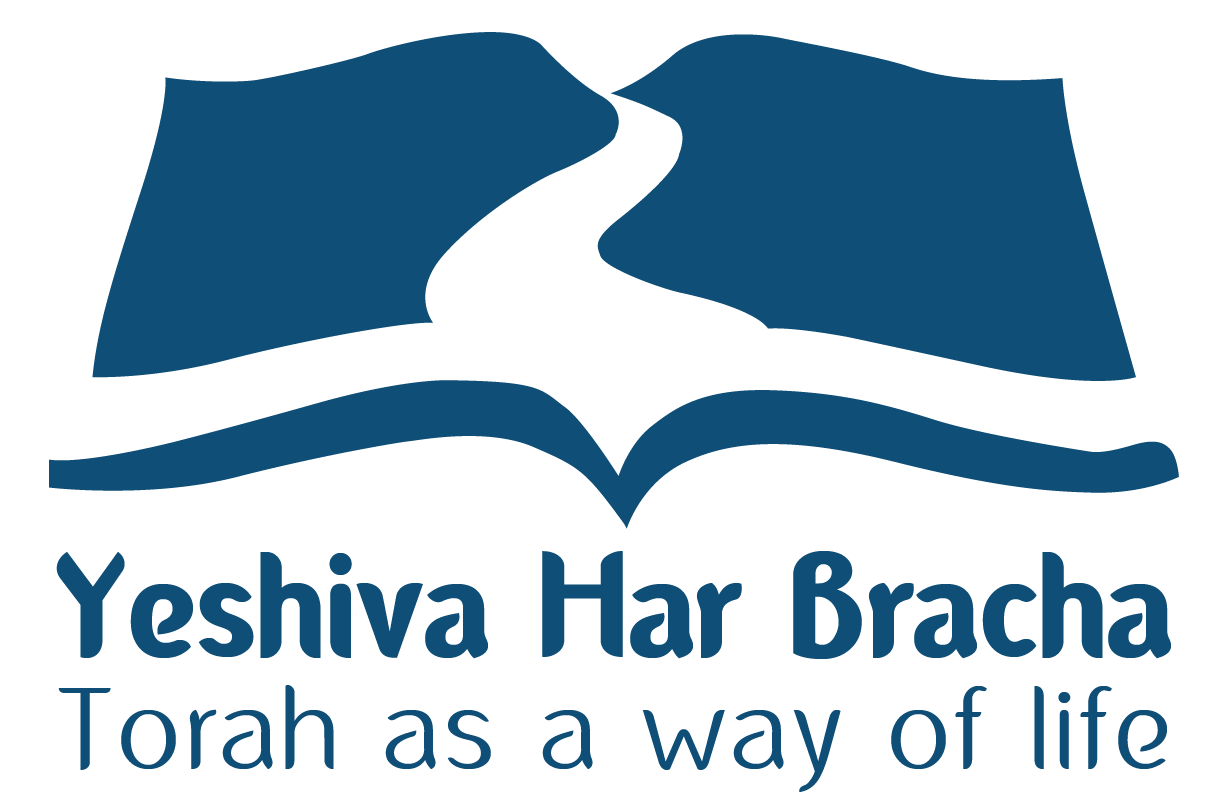The commandment to serve in the Israel Defense Forces is equal in weight to all the commandments * The internal dispute regarding the attitude toward the Arab enemy does not allow for a solution * The issue of haredi draft serves as a battering ram against the haredi public and the right-wing government, without a real attempt to solve it * The attitude toward members of the haredi public should be as toward dear and beloved brothers who are mistaken in a lesser matter * The commandment of tzitzit applies to a garment and covering that have four corners * Despite the fact that a towel has four corners, tzitzit are not attached to it, since it is not considered a garment * Those who wrap themselves in the state flag do so to express identification and not for the purpose of clothing and covering like a garment, therefore it is not obligated in tzitzit
Q: What is the rabbi’s opinion on the haredi draft crisis, how do we extricate ourselves from it? And what should be the attitude toward the haredi public?
A: Our situation in this matter is tragic, and encompasses all our serious failures: in understanding Torah, in unity of Israel, in attitude toward the Arab enemy, and in the legal and security establishment.
First, a serious error in halachic matter. The commandment to serve in the Israel Defense Forces is a commandment that is equal in weight to all the commandments from two aspects. One, saving the life of even one Jew overrides all the commandments in the Torah, how much more so, saving all of Israel. Second, Yishuv Ha-Aretz (the mitzvah of settling the Land), which is a commandment equal in weight to all the commandments, and the Torah even commanded to endanger lives in order to fulfill it. About such things our Sages said: “Be careful in study, for an error in study counts as deliberate sin” (Avot 4:13).
Second, the internal dispute about the attitude toward the Arab enemy does not allow for a solution. Right-wing people fear that if the left rises to power it will cause another disaster like the ‘Oslo Accords’ or the ‘Disengagement’, and therefore, are willing to give everything to haredi representatives as long as they don’t bring a terrible disaster upon the nation of Israel. On the other hand, left-wing people who believe that if only they give the Arabs the ability to establish a Palestinian state peace will come, are willing to give everything to haredi representatives, as long as they support their withdrawal proposals.
Third, despite this, it would have been possible to agree in principle on a useful framework that grants advantages to those who enlist, and denies benefits to those who do not enlist. However, left-wing people including the legal establishment, who are willing to harm the haredi public, are not willing for that same harm to apply to the Arab public and to the public of draft dodgers for other reasons, and thus it is not possible to establish in law effective incentives for those who enlist. In this situation, the issue of haredi draft serves as a battering ram against the haredi public and the right-wing government, without a real attempt to solve it.
Fourth, Supreme Court judges who have taken upon themselves scores of authorities, including the authority to exercise discretion without any limitation of the ‘ilat ha-svirut’, (reasonability clause), rule again and again on haredi draft from a claim of discrimination, while blatantly ignoring the discriminatory exemption that the Arab public receives. There is no justice in harming the haredi public for not enlisting, when simultaneously, they ensure that members of the Arab public receive all rights, in addition to affirmative action in many areas. We hoped for justice and behold, unjust, harmful rulings. As the verse says: “And he looked for justice, but behold oppression; for righteousness, but behold a cry” (Isaiah 5:7). In this situation, the legal system applies to itself the verse “In the place of judgment, there was wickedness” (Ecclesiastes 3:16).
Fifth, the Chief of General Staff who in principle demands that members of the haredi public enlist, is not really willing to accept them with a commitment to service rules that are suitable for them. According to General Staff members and the legal establishment, the “obligation” of gender integration in all units is more important. Therefore, there is no possibility to establish in law, army service rules appropriate for the haredi and religious public, and even in Chief of Staff orders, the army commanders are not willing to establish this.
Striving for Truth While Adding Love
In order to extricate ourselves from this crisis, we must continue to deepen and clarify the commandment to serve in the army, with certainty that the light of Torah will penetrate hearts and return us in repentance. We must continue to deepen and clarify the right of the people of Israel to their Land. Continue to deepen and clarify the concepts of universal justice that derive their validity from the soul that God placed in all mankind and in the people of Israel, in a way that the legal system will correct its ways. Through this, we can hope that army commanders will also fulfill their mission and focus on concern for security, and not on defending leftist conceptions and progressive positions.
Increase Love
The attitude toward members of the haredi public should be as toward dear and beloved brothers who are mistaken in a lesser matter. It is proper to add that it should be assumed that if we had been born in haredi society, most likely the choice that would have faced us would have been within the haredi framework, that is, whether to be insolent against the public that fulfills with self-sacrifice the enormous commandment of military service, or to honor them. Therefore, even though during wartime anger naturally increases, it is proper to maintain the principled position of Ahavat Yisrael (love of the Jewish people), both toward the entire public, and toward each individual whom we meet personally. Likewise, it is very praiseworthy of the haredi youth who, without giving up their way of life, understand the magnitude of the commandment, and enlist in the army. We hope that the good example they will give to the haredi public will inspire it to repent in this area, and all of us together, will improve the military and public system.
Measurement of Tallit Katan
Q: What is the size of a tallit katan, is it correct that only if it is very large can one bless on it?
A: The commandment of tzitzit applies to a garment and covering that have four corners. In order for the fabric to be considered a garment it needs to have a certain measurement. Our Sages said that it is the measurement ” a minor to cover his head and most of his body with it, and an adult goes out in public on occasion while wearing it” (Menachot 40b). “A minor” means like a nine-year-old, and the garment must cover his head and most of his body, when the hands and feet are not included in the body. A fabric of this measurement is a garment that a thirteen-year-old can already use in his clothing, and therefore it has the status of a garment, and consequently even a person with a large body who wants to walk in it must attach tzitzit to it.
In practice, many poskim hold that a garment whose length is a cubit and a half (about 70 centimeters), and whose width is a cubit (about 46 centimeters), is obligated in tzitzit with a blessing (Artzot HaChaim, Rav Pe’alim, and others). And those who want to beautify the mitzvah, take a garment whose length is two cubits (about 92 centimeters), and whose width is a cubit (about 46 centimeters). A tallit of this measurement covers most of the body of a large person.
In calculating the cubits there is no need to be concerned about the opinion of Chazon Ish, since the poskim who spoke about the measurement of a cubit and a half spoke about the measurement that was accepted for halakha, and were not familiar with the measurement of Chazon Ish.
Towel or Body Armor with Four Corners
Q: Is a person who wraps himself during daytime hours in a towel when he comes out of the shower obligated to attach tzitzit to the towel?
A: Despite the fact that a towel has four corners, and despite the fact that sometimes one coming out of the shower wraps himself in it to cover himself, or to warm himself with it, tzitzit are not attached to it, since it is not considered a garment, and only a garment is obligated in tzitzit. That is, since the purpose of the towel is to dry and not as a garment to cover the body, even when temporarily one wraps himself in it, it is not obligated in tzitzit.
Similarly, body armor against an enemy, a vest against radiation, an apron for protection from dirt during work, an apron for haircuts, even when they have four corners – are exempt from tzitzit since they are intended for protection from certain things, and therefore are not considered as a garment intended for protection from cold or heat, or for honor (see Orach Chaim 10:11, “sudor”).
Those Who Wrap Themselves in the State Flag
Q: Sometimes in special moments of memorial ceremonies or in the ‘March of the Living’ in Poland, there are people who wrap themselves in the Israeli flag. Since the flag has four corners, are they not transgressing the prohibition that they wrap themselves in a garment that has four corners without tzitzit? It is worthy to mention that the Israeli flag was entirely made in the inspiration of the tallit and the color of techelet.
A: Since this is not a garment, and the wrapping in it is for the purpose of expressing identification, and not for the purpose of clothing and covering like a garment, it is not obligated in tzitzit.
Haircut at Age Three (Halaka) on Chol HaMoed
Q: Is it permitted to do a halaka on Chol HaMoed, so that more family members can participate in the joy?
A: It is permitted, because our Sages forbade haircutting on Chol HaMoed so that they would cut their hair before the holiday, but a child whose hair has grown and causes him distress is permitted to be cut, since he has not yet reached the age of mitzvot, he has no obligation to prepare for the holiday, and consequently, our Sages did not decree not to give him a haircut on Chol HaMoed (Shulchan Aruch Orach Chaim 531:6). Similarly, those who are accustomed to celebrate the first haircut of a child when he reaches age three, are permitted to cut his hair on Chol HaMoed. And even when his birthday falls before the holiday, it is permitted to delay his haircut to Chol HaMoed in order to increase the joy (Gan HaMelech, She’arei Teshuva 531:7).
Buying a Ticket for a Relative Who Will Desecrate Shabbat with It
Q: Thanks to my workplace, I have a benefits card with a significant discount for all kinds of sites and attractions. A first-degree relative asked me to order tickets for him and his family to a certain museum so that they could visit it on Shabbat. Is it permitted for me to buy him the tickets at a discount? Is this called assisting a transgressor? I will note that in any case, he will travel to the museum on Shabbat, even without my discount.
A: Since this involves the prohibition of traveling on Shabbat and other prohibitions, if you buy a ticket for his family, you will be considered “assisting in transgression.” Therefore apologize, and tell him that if you do this, you will be found a partner in Shabbat desecration, something you cannot do. If it were about a general ticket, and he did not tell you that he intends to use the ticket on Shabbat, it would be permitted for you to buy him the ticket without investigating whether he intends to use it on Shabbat.
Are Dogs and Cats Muktzeh on Shabbat
Q: Following the column last week about guide dogs, I wanted to ask: Are pet dogs that are raised in homes muktzeh?
A: The rule is that anything that has no use on Shabbat is muktzeh, and it is forbidden to move it on Shabbat. This includes animals that are also considered muktzeh. And in a case where one needs to take them from their place to prevent them from suffering, our Sages permitted holding them and dragging them, but not lifting them (Shulchan Aruch Orach Chaim 308:39-40).
This was also the ruling regarding cats and dogs, because they were not accustomed to raising them in the house as pets, but only used them for guarding outside. But today, when it is customary to raise them as pets, all dogs and cats whose owners are accustomed to lifting them and playing with them all week long, as well as guide dogs – are not muktzeh, and it is permitted to touch them, and lift them. And so ruled Rabbi Feinstein (Igrot Moshe Orach Chaim Part 5, 22:21) and Rabbi Auerbach (Shulchan Shlomo 308: 74). And although there are poskim who are stringent, since the law of muktzeh is rabbinical, and their reasoning seems sound, the halakha follows the lenient opinion.
This article appears in the ‘Besheva’ newspaper and was translated from Hebrew.








